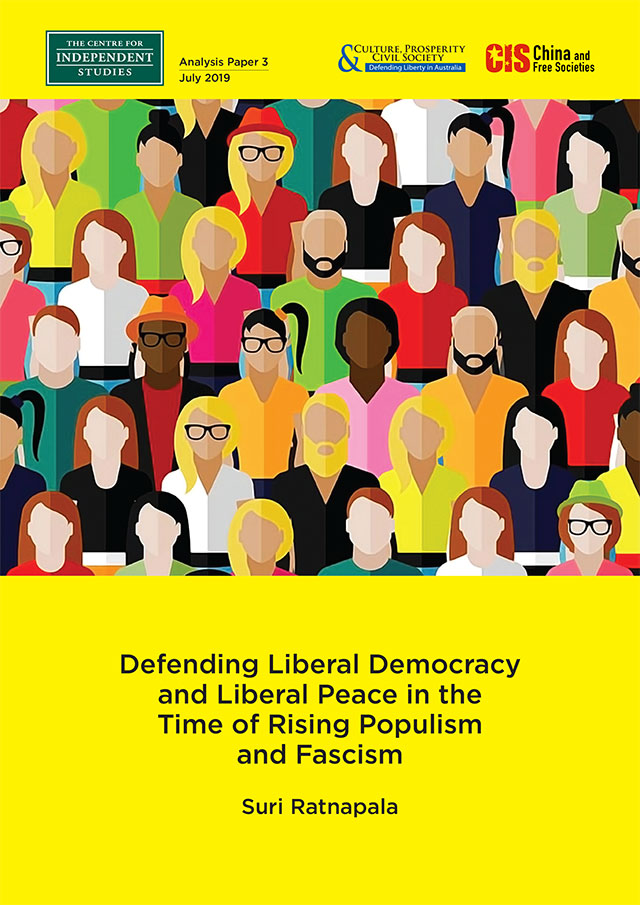
Liberal democracy has been remarkably resilient in the face of external and internal threats, but now confronts new-old challenges from rising populism, mercantilism and fascist ambition. While the deepening fissures and fault lines within liberal democracies must be addressed, this division and dysfunction is coinciding with the rise of powerful authoritarian regimes. The weakening of liberal democracy thus strengthens authoritarian regimes directly and indirectly.
The People’s Republic of China today best illustrates the interplay of mercantilism and fascism — as evidenced by absolutism, protectionism and expansionism — but other regimes are also trending towards the archetype. Together these internal and external trends combine to threaten free trade, republican liberty and the rules-based international order that have underpinned the postwar liberal peace.
History has not ended. Liberal democracies must be vigilant and prepared to counter external threats. Equally, they need to recognise and address internal movements that, by design or unintended consequence, threaten their values and institutions.










